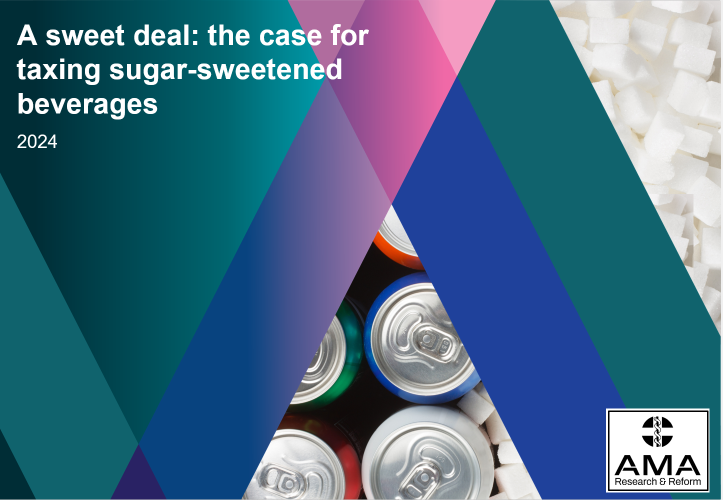A sweet deal: the case for taxing sugar-sweetened beverages
The AMA's latest report on the case for taxing sugar-sweetened beverages reveals the tax would generate around $1 billion annually in revenue and result in the reduction of 2.6 kilograms of sugar per person, per year.

Sugar-sweetened beverages contain large amounts of free sugars — 8–12 teaspoons (33–50 grams) of sugar in the average 375 mL can of soft drink. This is more than the daily recommended amount of sugar in just one drink, delivering a high number of liquid calories but providing almost no nutritional benefit. Despite the high sugar content and the health risks, Australians are consuming sugar-sweetened beverages in huge volumes.
Frequent consumption of sugary drinks is associated with a range of health problems, such as poor dental health and obesity — a major risk factor for chronic diseases like type 2 diabetes, heart disease, stroke, and cancer. These conditions, many of which are preventable, have a significant impact on our healthcare system and broader economy.
To help address this issue, the AMA is calling for a tax on a subset of sugar-sweetened beverages — all non-alcoholic drinks containing free sugars, excluding 100 per cent fruit juice, milk-based and cordial drinks. The focus is drinks that provide no nutritional benefit. According to the World Health Organization, 108 countries have implemented some form of a tax on sugar-sweetened beverages, and several studies have been conducted that demonstrate the impact a tax has on reducing obesity and chronic disease, and improving oral health.
The AMA’s analysis shows that a tax on sugary drinks would raise annual government revenue of $1,031.00 million in 2024–25, falling to $967.00 million in 2027–28. Over four years (2024–25 to 2027–28), this would translate to government revenue of $4.0 billion (not including estimated administration costs of $3.50 million across the forward estimates). The revenue generated by the tax could be used to fund other preventive health initiatives, as part of a broader obesity prevention strategy.
A tax on sugar-sweetened beverages would also introduce a price signal to consumers that the product is unhealthy, create a disincentive in the form of higher prices, and incentivise manufacturers to reformulate (i.e. lower the sugar content of products). It is estimated the tax would reduce sugar consumption by 15.2 per cent in 2024–25, growing to 25.8 per cent in 2027–28, resulting in the reduction of 2.62 kilograms of sugar per person per year consumed through sugar-sweetened beverages


